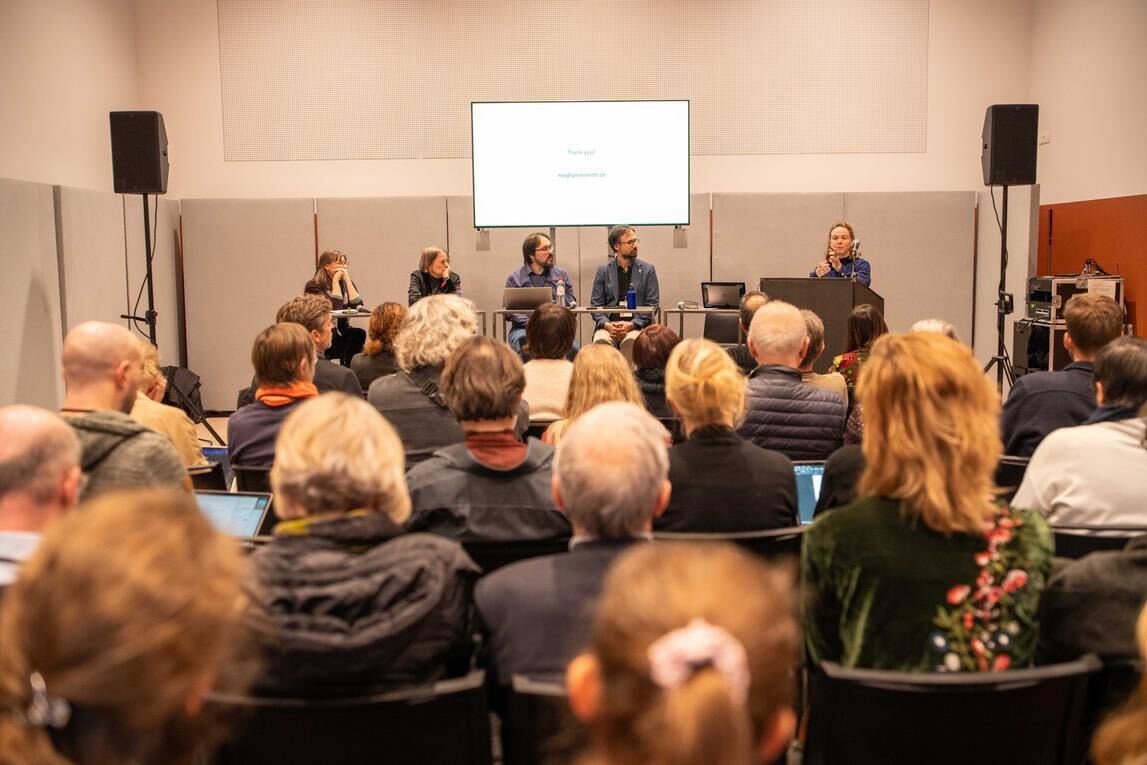The AEC joined REMA – the European Network for Early Music – in their first in-person Summit- What’s Next – the Future of Early Music in Questions, held from 30 November to 3 December at the Bozar in Brussels and Concertgebouw in Bruges.
The Summit brought 200 early music promoters, educators and musicians together in person, fostering a sense of connection and collaboration that no virtual meeting could match. The exchange of ideas, insightful discussions and the establishment of new partnerships have created a solid foundation for the future of the early music sector.
The AEC session, attended by 40 participants, was prepared by the AEC Early Music Task Force. It took place in Bruges on 2nd December under the title “Beyond Concert Culture: Initiatives from the Conservatories”. The session consisted of a panel discussion moderated by the AEC Early Music Task Force chairman Isaac Alonso de Molina with contributions by the following professionals:
- Anne Smith, Schola Cantorum Basiliensis
- Judith Paquier, Les traversées baroques and le Pôle Aliénor
- Marcello Mazzetti, The University of Padua and The Italian Institute for Early Music (ISTIMA)
- Kelly Landerkin, Schola Cantorum Basiliensis
 ©Culto Productions
©Culto Productions
The speakers presented initiatives aimed at audience development, which has become a crucial point of discussion within the Early Music scene. In the old world, music was intrinsically connected to society. Currently, standardised roles such as audience, performer, composer, etc. were less clear-cut, and music was, often, just one element of a larger complex, combined with other arts (theatre, poetry, dance), and intimately related to diverse spheres of human activity. With their examples, contributors wanted to reply to the following questions: is there something that we can learn from the past to secure a meaningful connection with society for Early Music now and in the future? Is there a role for Early Music in society, beyond concert culture?
Anne Smith explained how Ine Lohr, in the early 20th century, founded the Schola Cantorum for the local population in Basel, integrating the concept of Housmusik which is at the basis of early music: music had the function of bringing people playing together and the borders between audience, artists, professionals and amateurs were blurred and music was an integral part of communities and societies. Judith Paquier explained how her ensemble Les traversées baroques brings early music in non-concert settings such as museums, and schools, creating a proximity between the musicians and the inter-generational audience that triggers curiosity for listening and playing early music. Finally, Marcello Mazzetti and Kelly Landerkin presented the initiatives “Early Music Department of the City of Brescia” and “Oy Cantemos”, which successfully reconstruct pedagogical settings and methods of 16th century music making to teach early music to a wider young audience in the local community with the aim of building the audience (and sometimes, the musicians) of tomorrow.
For more information about the AEC Early Music activities and the REMA Early Music Summit please refer to the AEC Events Manager Sara Primiterra at events@aec-music.eu.
AEC’s Early Music Platform Task Force
- Isaac Alonso de Molina – Chair (The Hague)
- Kelly Landerkin (Basel)
- Claire Michon (Poitiers)
- Anton Steck (Trossingen)
- Sara Primiterra – Coordinator (AEC office)






